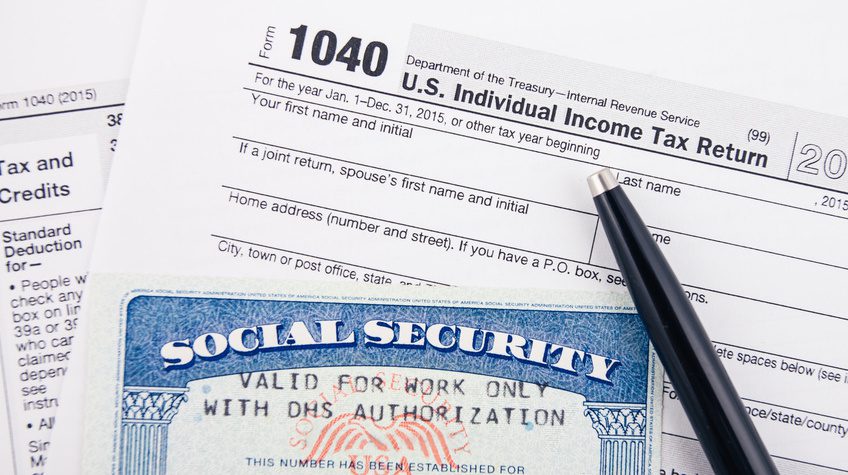
The SECURE Act 2.0 is now law. In December 2022, Congress passed and President Biden signed this sweeping legislation that effectively overhauls much of the retirement landscape in America. The bill’s key provisions are centered around required minimum distributions, when they must be taken, and some changes to workplace retirement plans and retirement accounts.
On top of RMD changes, SECURE Act 2.0 also contains a great many changes to Roth savings accounts and how they can be used. The Roth rules have been expanded in an effort to increase current tax revenue, as Roth accounts are always funded with after-tax contributions.
Here, we will examine the key provisions of SECURE Act 2.0 and how they might affect retirement for you as well as your loved ones.
Read More

Let’s get into a deeper dive on pension plans, alternatives that are available and will pay you guaranteed income for life, and how these options look in the full spectrum of retirement planning.
Are you looking for alternatives to a pension plan for guaranteed income in retirement? Perhaps you have a pension plan and worry about its future ability to make good on promised payments.
Pensions are becoming increasingly rare in corporate America today. Many private-sector employers have replaced pension plans with 401(k) or other profit-sharing plans to cut costs.
But if you are lucky enough to have a pension plan, it’s important to know how it works, what you will get from it, and explore pension alternatives for secure retirement options. And if you won’t be getting a pension, exploring your options can help you make well-informed decisions about retirement.
Let’s dive into pension plans, alternatives that guarantee lifetime income, and how these options fit into your overall retirement planning strategy.
Read More

Are you counting on a pension when you retire? Are you familiar with how it works? In this article, we will give a quick overview of how a pension plan works, different types of pension plans, and how payments from a pension plan to retirees work.
Once you have a better understanding of how your pension works, you will be in a better position to make well-informed choices about your overall retirement. That can include whether other sources of retirement income will help you reach your goals. Read on for a deeper dive into the basics of a pension plan and how it works.

We’ve spent most of our working lives hearing advice to save and plan for retirement. However, retirement isn’t just about gathering assets for later years; it’s also about wealth protection to preserve your family assets from potential loss.
Here are some practical tips and strategies you can implement to safeguard your hard-earned wealth and ensure your family’s financial security.
What Is Wealth Protection?
Wealth protection in the financial industry refers to wealth management strategies and tools to help individuals, families, and businesses protect their assets. Everyone needs to put protective measures in place to deal with unexpected events, which will undoubtedly occur.
You will face various potential threats to your financial well-being throughout your life. These risks involve potential harm to your retirement plans and your estate plan. You will also want to manage your liability risk, whether professional in your career or at home in your family.
Read More

Editor’s note: This is part 2 of a series on different types of bonds. Here is part 1 of this series on government bonds.
Bonds and other fixed-interest assets play a valuable role in modern retirement planning. They help balance market risk, create retirement income streams, and keep overall volatility in a financial plan at bay.
Bonds assure that you will be paid interest during their term. Then once the term is over, they repay the original investment, or principal, back to the investor. The ability of a bond to meet these obligations is backed by the financial strength of the bond issuer.
In this article, we will go over different types of bonds offered by a municipality or a corporation. Before going into further detail about different kinds of bonds, here is a quick sum-up of a bond’s basic features.
Read More

Editor’s note: This is part 1 of a series on different types of bonds. Here is part 2 of this series on corporate and municipal bonds.
Bonds are a core staple of many financial strategies today. They are among the different types of fixed-interest instruments that can be used for generating retirement income, balancing out risks held by other assets, and smoothing out volatility in general.
With a bond, someone has a guarantee that they will be paid interest during its term. Once the bond matures, the principal is paid back to the bondholder. The ability to meet these obligations is backed by the financial strength of the issuer of the bond.
For this reason, government bonds are generally considered to be a type of bond with lower risk than others. After all, the government has the authority to raise taxes and print money to meet its obligations.
There are different types of bonds, and they vary in a number of ways: length of term, interest rates, and the type of issuer, to name a few. It’s helpful to know at a high level about these different bond types and how they might play out.
Here is a breakdown of the different types of bonds and what they involve. In this article, we will go over various types of government bonds available.
Read More

When calculating individual benefits, the Social Security Administration draws on up to 35 years of personal earnings history. To receive Social Security benefits in the first place, you have to work at least 10 years. Therefore, it’s not that surprising that many people see their benefits as something they have earned.
Yet each year, Uncle Sam collects a share of people’s benefits through income taxes. You may have to pay taxes on as much as 50%-85% of your benefits, depending on how much income you report to the IRS. Read More

There are many types of risks that investors might take in order to achieve their financial goals. They can insure themselves against market risk by having money in safe vehicles such as fixed annuities, Treasury securities, and CDs.
However, at times inflation can be higher than how much money might grow in these lower-risk vehicles, so that must be taken into consideration as well. Some types of financial risk can be reduced or eliminated by diversifying your portfolio while other types of risk are immune to this strategy.
But the most important issue is this: How do you see and perceive risk and then react to it? This is where the psychology of investing comes into play. Here’s a look at how it can affect your money and retirement in different ways. Read More

Tired of leaving your retirement money at risk, especially to stock market corrections or falling interest rates? Learn some effective ways to protect your wealth and minimize risks in our Safe Money Books — at no cost to you. You can request these free materials and discover how you can secure your retirement portfolio with guaranteed income and protection strategies.
Most public discussions and financial media on retirement planning cover accumulating assets and building up savings. They focus on the question of how to achieve a bigger nest egg. But retirement isn’t about accumulating assets — it’s about setting lifestyle goals, securing income to pay for those goals, creating protection strategies to safeguard your money, and managing risks.
Ready to start preparing for a more secure future? Then request this three-part Safe Money Book series now.
Call us at 877.476.9723, toll-free, or click here to request your free, personalized Safe Money book copies.
Read More

Inflation may not be the most exciting topic, but nowadays retirees may experience it first-hand for as long as 30 years or more. They can see its real effects on the purchasing power of their money over such an extended period.
Just think of what has happened to the cost of buying a new home over the past 30 years. Inflation has run rampant, and it can have such a big impact on retirement spending that it even warrants protection against it as part of an overall financial plan. Read More


















